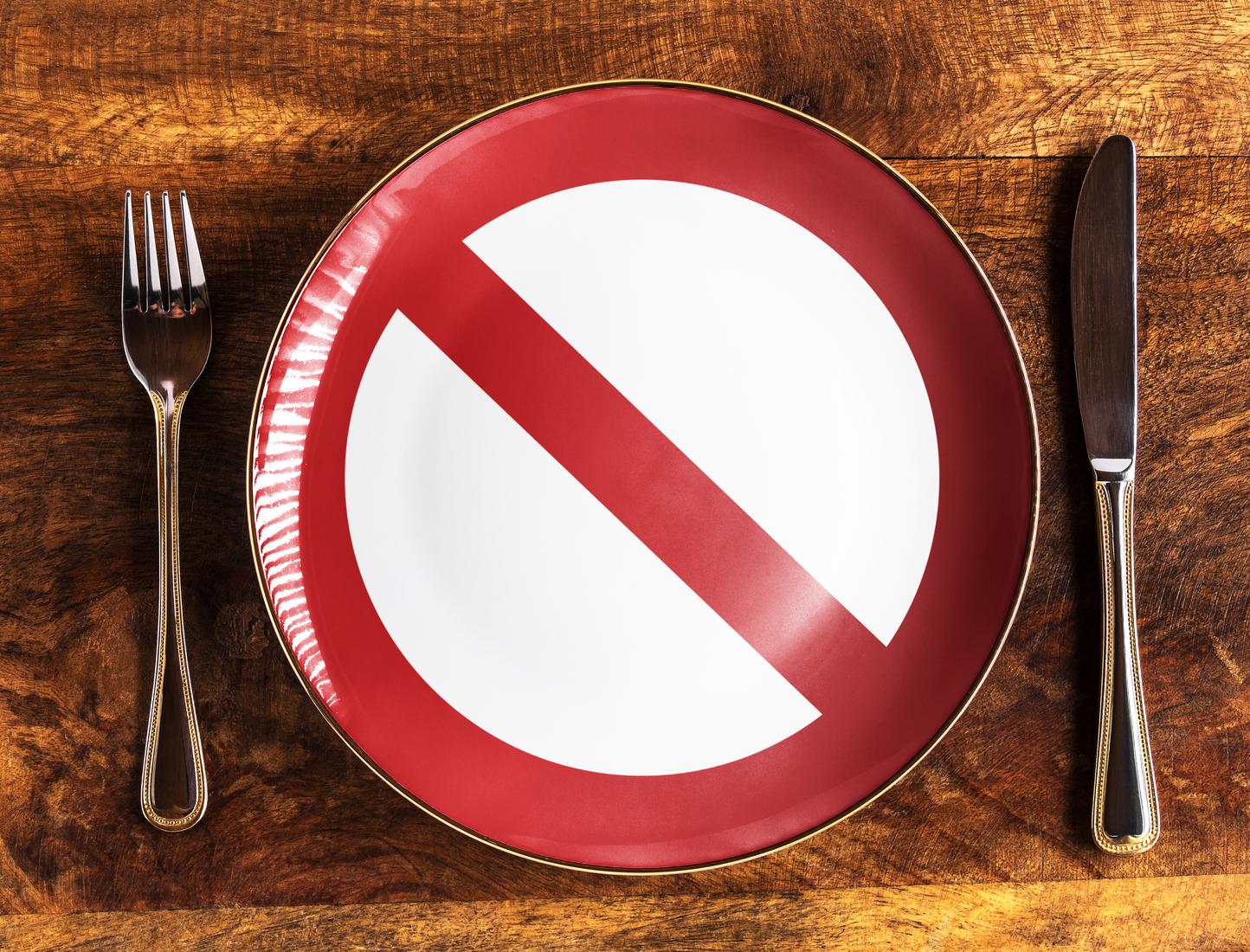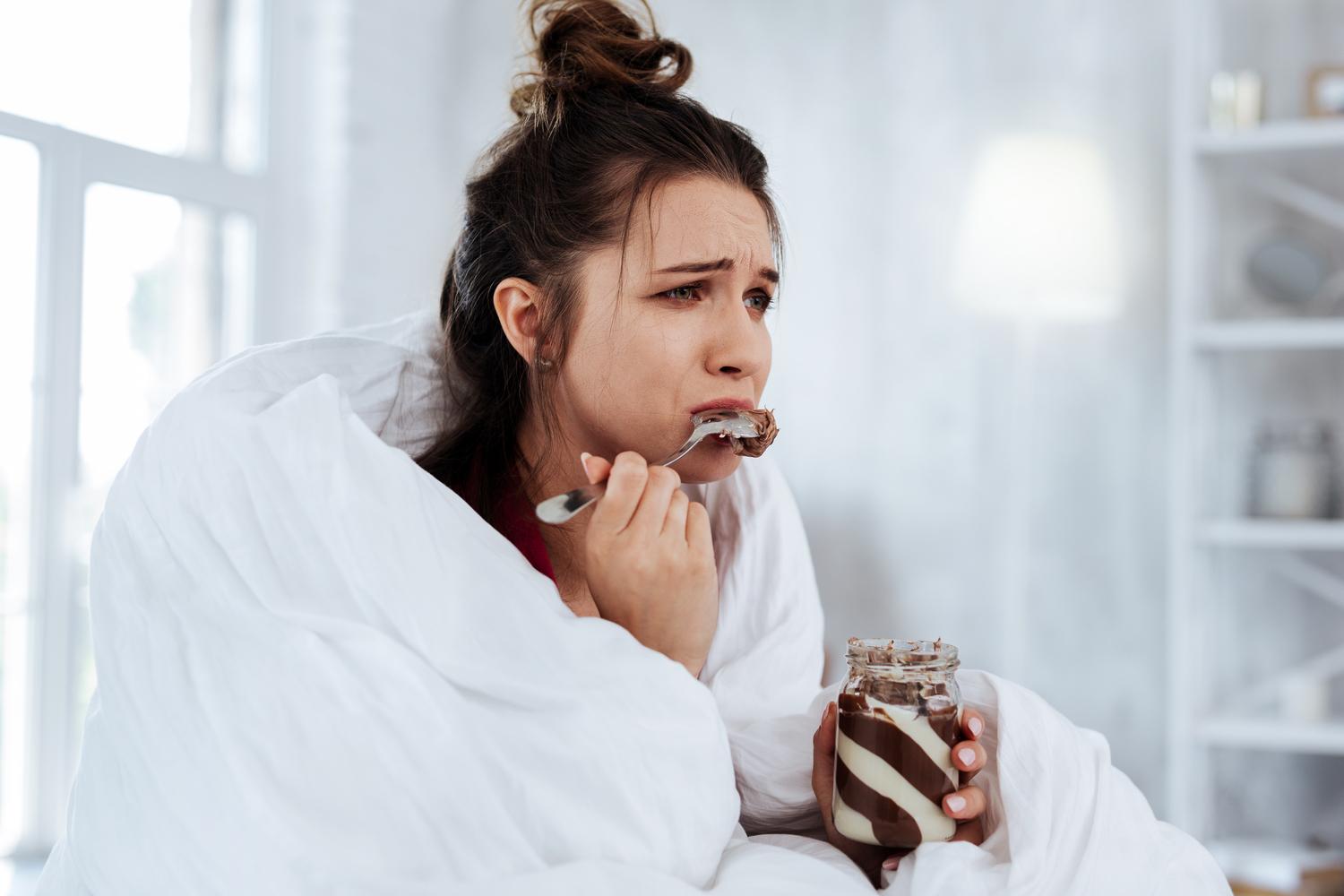Your body already knows the recipe for your health. Trust it and enjoy the meal!
Everyone who has ever attempted to find the proper diet has run into one major issue: how to stick to a diet from start to finish if not all of its components are beneficial to the body? Some things could work for you, while others might not. There's nothing unusual about that. Moreover, you do not need to follow every diet item without reservation, especially if you are trying to drop a significant amount of weight1D. Ashtary-Larky, M. Ghanavati, N. Lamuchi-Deli. (2017,17 May). Rapid Weight Loss vs. Slow Weight Loss: Which is More Effective on Body Composition and Metabolic Risk Factors? International Journal of Endocrinology and Metabolism. DOI:10.5812/ijem.13249, as with the Military Diet.
Eat tasty food and lose weight with Unimeal app!
Take a Quiz – Get personal meal plan – Achieve your weight goals!
Start QuizStrictly speaking, this is not a very viable option. Many strive to override the feelings of hunger while depleting their bodies. We are replacing "diet" with "chronic dieting"2K. D. Hall, S. Kahan. (2018, January). Maintenance of Lost Weight and Long-Term Management of Obesity. Medical Clinics of North America. DOI:10.1016/j.mcna.2017.08.012.
Medical research3E. L. Barraclough, E. J. C. Hay-Smith, S. E. Boucher. (2019, 1 Feb). Learning to Eat Intuitively: A Qualitative Exploration of the Experience of Mid-Age Women. Health Psychol Open. DOI:10.1177/2055102918824064 empirically proves that Intuitive Eating is different from dieting for various reasons. One of the participants in the study summed up the findings in a fitting way: “It’s more about a lifestyle choice than a diet.” It seems that Intuitive Eating is more than people think it is. We propose to figure it out on your own.
Intuitive Eating is a self-care eating philosophy, mainly based on the 1995 year go-to book “Intuitive Eating: A Revolutionary Program That Works” by Evelyn Tribole, M.S., R.D, and Elyse Resch, M.S., R.D., F.A.D.A. Its main approach is to change eating habits and allow your organism to listen to its internal hunger cues. Instead of starving yourself or nervously eating tons of fast food, Intuitive Eating offers a body-oriented strategy.
Calorie counting and constant meal planning can create anxiety, which ultimately leads to overeating. According to study3E. L. Barraclough, E. J. C. Hay-Smith, S. E. Boucher. (2019, 1 Feb). Learning to Eat Intuitively: A Qualitative Exploration of the Experience of Mid-Age Women. Health Psychol Open. DOI:10.1177/2055102918824064, dieting restriction and labeling foods as good or evil lead to preoccupation, excessive consumption, being naughty, consequent shame, and self-hatred.
Dieting becomes rollercoaster-like due to regular breakdowns and repeated attempts to starve oneself. Women become disappointed or sad as a result of their failure to lose weight. Eating intuitively is completely the opposite. It's a rather careful concept and step-by-step way to lose weight without counting calories.

As long as we determine Intuitive Eating as a non-diet approach, we may say that it’s about relearning to eat outside of the diet mindset. This eating philosophy focuses on internal indications such as hunger, fullness, and pleasure of food rather than external factors such as dietary rules and limitations.
This does not mean that you should only satisfy your cravings for fast food and sweets without controlling your food list at all. On the contrary, you have to listen to many factors other than fullness when it comes to eating intuitively. For instance:
By taking all these factors into account, it becomes clear that Intuitive Eating's opportunities seem to be very enticing. You may stop suffering from overeating or binge eating, but at the same time, you won’t be forced into the framework of the following diet. The body, like your brain, will form new eating habits.
When you have set the goal of making peace with food for yourself, you start thinking about the next task: how can I realize this in my life? There is already an answer to this question. In their book, Evelyn Tribole and Elyse Resch describe 10 core principles that can guide you to living free from body image issues.
The diet mentality is a delusion that diets are the only source of wellness and a healthy weight.
How to follow? - Get rid of the diet plans and blog posts that promise you to lose weight rapidly and forever.
- Don't accept the myths that have made you feel miserable any time a new meal plan failed, and you got all the extra weight back.
- Start a new page of your life without dieting dependency.

Honoring hunger is to respect your needs and respond to the body's natural cues on time.
How to follow?
- You must realize that the feeling of starvation is a natural occurrence.
- Become attentive to your hunger.
- Do not make yourself starve so that you must overeat later, and at the same time do not force yourself to eat a lot to start the next day on a strict diet.
Feel peace and calm about eating what your body requires, without any shame or guilt.
How to follow?
- Agree with yourself that you can eat anything you want. Down with restrictions!
- Do not forbid yourself any food because unconsciously we always try to find the forbidden source. This is how it works because the desired product has been singled out from all the rest.
- No judging and no severe "stop" signals. The stricter the ban, the greater the failure might happen.
The food police is your inner voice yelling at you when you break the diet or calorie counting process.
How to follow?
- Don't judge yourself by the number of calories you eat per day. The food police must not interfere with your recovery.
- Do not scold yourself if your diet is over or under the recommended daily calorie intake4NHS: Food and diet. (2019, 24 October). What Should My Daily Intake Of Calories Be? NHS: Food and diet. Retrieved from https://www.nhs.uk/common-health-questions/food-and-diet/what-should-my-daily-intake-of-calories-be/.
- Give your internal police a time off.

Find food that combines both benefits and satisfaction for you.
Useful info: Researchers prove5M. Landry, S. Lemieux, A. Lapointe, et al. (2018, 1 June). Is Eating Pleasure Compatible With Healthy Eating? A Qualitative Study on Quebecers' Perceptions. Appetite. DOI:10.1016/j.appet.2018.02.033 that our pleasure center is directly linked to the food center. What we eat often makes us feel the most pleasant. For example, chewing a bar of chocolate we consume not only fats and calories, but also different useful compounds. Tryptophan and serotonin help to relax and feel joy. Anandamide and phenylethylamine stimulate pleasure receptors6Ian Macdonald. (2007, 22 February). Boosting Brain Power – With Chocolate. The University of Nottingham. Retrieved from https://www.sciencedaily.com/releases/2007/02/070221101326.htm.
How to follow?
- Carefully observe how your brain reacts to different foods to not be fooled by only a few types of receptors.
- Find food that makes you drool over.
- Make sure that the satisfaction of the food matches its benefits.
- Find a balance, but in no case deny yourself all the gastronomic pleasures.
The fullness principle is the ability to get enough food in moderation.
How to follow?
- To accomplish this issue, you need to trust that you provide the body with the food it deserves.
- Pay attention to your body's cues that you're no longer hungry. Keep an eye out for signals that you're comfortably full.
- While eating, try to pause and listen to your feelings: what food tastes like, whether you have eaten enough, whether your stomach is full. This will help you better understand how to control the degree of fullness.
Patiently deal with the acute emotions that cause you to overeat.
How to follow?
- Each of us has factors in life that influence our decisions. When we are upset, discouraged, angry, or intolerant, we often compensate for our emotional state with additional food. Try to identify what provokes you the most.
- Eliminate these factors, or, at least, remember at that moment, it is not hunger that pushes you to overeat, but an internal psychological problem.

Accept the genetic code you were born with.
How to follow?
- Accept that if you have your particular somatotype and average weight, there is no need to change it. You can cause irreparable damage to your health if you go against nature.
- Make the most of your health and body knowledge.
- Love every fold and unevenness in your body.
Try to feel every cell of your body and find the difference between a life with activities and without them.
How to follow?
- Exercising, feel how each of your muscles stretches. How many calories are burned with planks and squats?
- When working out, concentrate on how your body is being toned and built. The body should feel better after every workout you do.
Gentle nutrition is about making meal choices that are healthy as well as beneficial for your mood.
How to follow?
- Keep in mind that you don’t have to follow a precise plan to eat healthily. Ona snack can’t ruin all your fit.
- Instead, remember to pay attention to what you eat regularly.
- To avoid self-critical or guilty thoughts follow all the principles step-by-step, and nourish your body properly. What matters is progress, not perfection.

Although the Intuitive Eating challenge looks relatively easy and attractive and your body asks you to finally give free rein to its impulses, in this matter, it is worthwhile to move gradually. Before you rush into following the 10 principles, take at least a few days to prepare your body and mind.
You don't have to look far to find the motivation to start eating intuitively. All you have to do is read a book by Elyse and Evelyn, which describes the central tenets of Intuitive Eating.
The second mandatory point is the termination of any diets. Do not try to combine the principles of Intuitive Eating and a constant diet. This completely negates the effect.
Start with your food list. Find food that you like and give the body a feeling of fullness, but not over fulfillment. Most importantly, you need to relax and enjoy your meal process. Don't be overwhelmed by the urge to eat well early in the morning or grab a snack after 6 p.m. Start following the body's internal clock.
According to researches, IE can help with a variety of medical, psychological, and behavioral issues. It correlates with reduced weight status and BMI across the body7H. E. Bush, L. Rossy, L. B. Mintz, et al. (2014, 1 June). Eat for Life: a Work Site Feasibility Study of a Novel Mindfulness-Based Intuitive Eating Intervention. American Journal of health promotion: AJHP. DOI:10.4278/ajhp.120404-quan-186. Moreover, there is a link between Intuitive Eating and considerably improved total LDL and HDL cholesterol8N. V. Dyke, E. J. Drinkwater. (2013, 21 August). Review Article Relationships between Intuitive Eating and Health Indicators : Literature Review. Public health nutrition. DOI:10.1017/s1368980013002139.
From the point of view of behavioral outcomes, Intuitive Eating reduces the number of eating disorder behaviors9J. L. Mensinger, R. M. Calogero, S. Stranges, et al. (2016, 1 October). er). A Weight-Neutral versus Weight-Loss Approach for Health Promotion in Women with High BMI : A randomized-controlled trial. Appetite. DOI:10.1016/j.appet.2016.06.006. Many women noted greater satisfaction8N. V. Dyke, E. J. Drinkwater. (2013, 21 August). Review Article Relationships between Intuitive Eating and Health Indicators : Literature Review. Public health nutrition. DOI:10.1017/s1368980013002139 with their body shape and better acceptance of themselves on a psychological level.
In addition to research statistics, you can turn to more illustrative examples from life. People try Intuitive Eating and share their results on blogs and social media every day. You can even ask them questions and see how this method works for you too.
Intuitive Eating is much more than "eat when and what you want". Intuitive Eating is a philosophy that fosters a more mindful and healthy lifestyle. Its basis is an understanding of one's own body and its needs, respect for its desires, and the ability to listen not only to the stomach but also to all body systems.
Hundreds of research and clinical experience confirm the ability to solve the nutritional dilemma with the help of Intuitive Eating. Of course, everyone needs an individual approach to fight against excess weight, but the Intuitive Eating concept is undoubtedly worth the try.
Unimeal does not diagnose or suggest treatments. Any description of the diet, training plan or supplement should be discussed with your current physician or nutritionist. This article does not address specific conditions and is simply meant to provide general information on healthcare topics. Following any advice is at your own initiative and does not impose any responsibility on the blog authors for your health and safety.
Sources:
By choosing high-quality sources, we make sure that all articles on the Unimeal blog are reliable and trustworthy. Learn more about our editorial processes.
1.
2.
3.
4.
5.
6.
7.
8.
9.